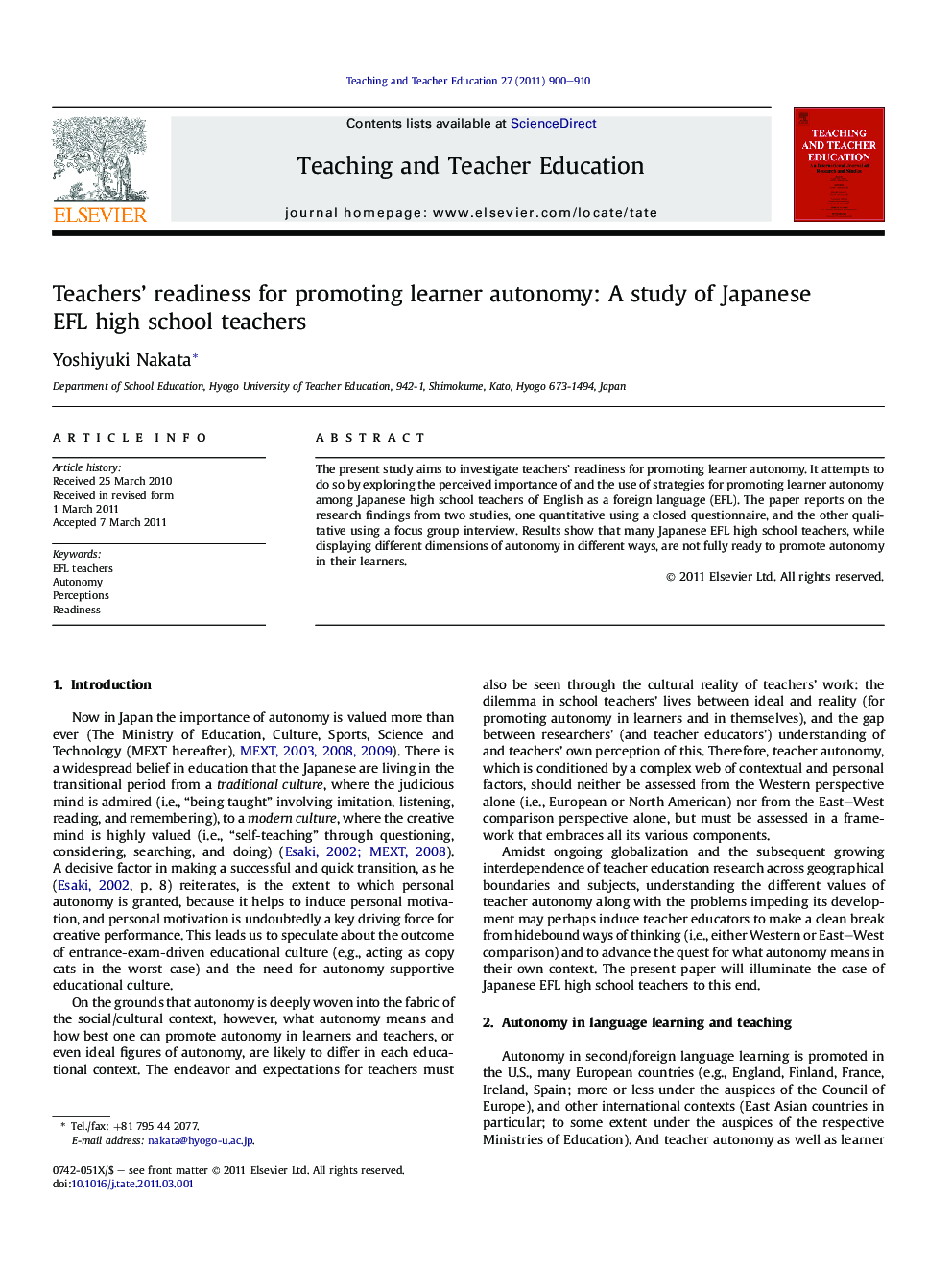| Article ID | Journal | Published Year | Pages | File Type |
|---|---|---|---|---|
| 374369 | Teaching and Teacher Education | 2011 | 11 Pages |
The present study aims to investigate teachers’ readiness for promoting learner autonomy. It attempts to do so by exploring the perceived importance of and the use of strategies for promoting learner autonomy among Japanese high school teachers of English as a foreign language (EFL). The paper reports on the research findings from two studies, one quantitative using a closed questionnaire, and the other qualitative using a focus group interview. Results show that many Japanese EFL high school teachers, while displaying different dimensions of autonomy in different ways, are not fully ready to promote autonomy in their learners.
► Most teachers realized the importance of the strategies, but did not use them as much as they supported them both with students and with themselves. ► The social/cultural context impinges on what teachers decide to do to promote their students’ and their own autonomy. ► The three dimensions of readiness (i.e., behavioral, situational, and psychological) are conditioned by the social/cultural context which is filtered by teachers’ professional/personal lives. ► To achieve the full characteristics of language teacher autonomy, one’s professional autonomy must be integrated with teaching autonomy.
